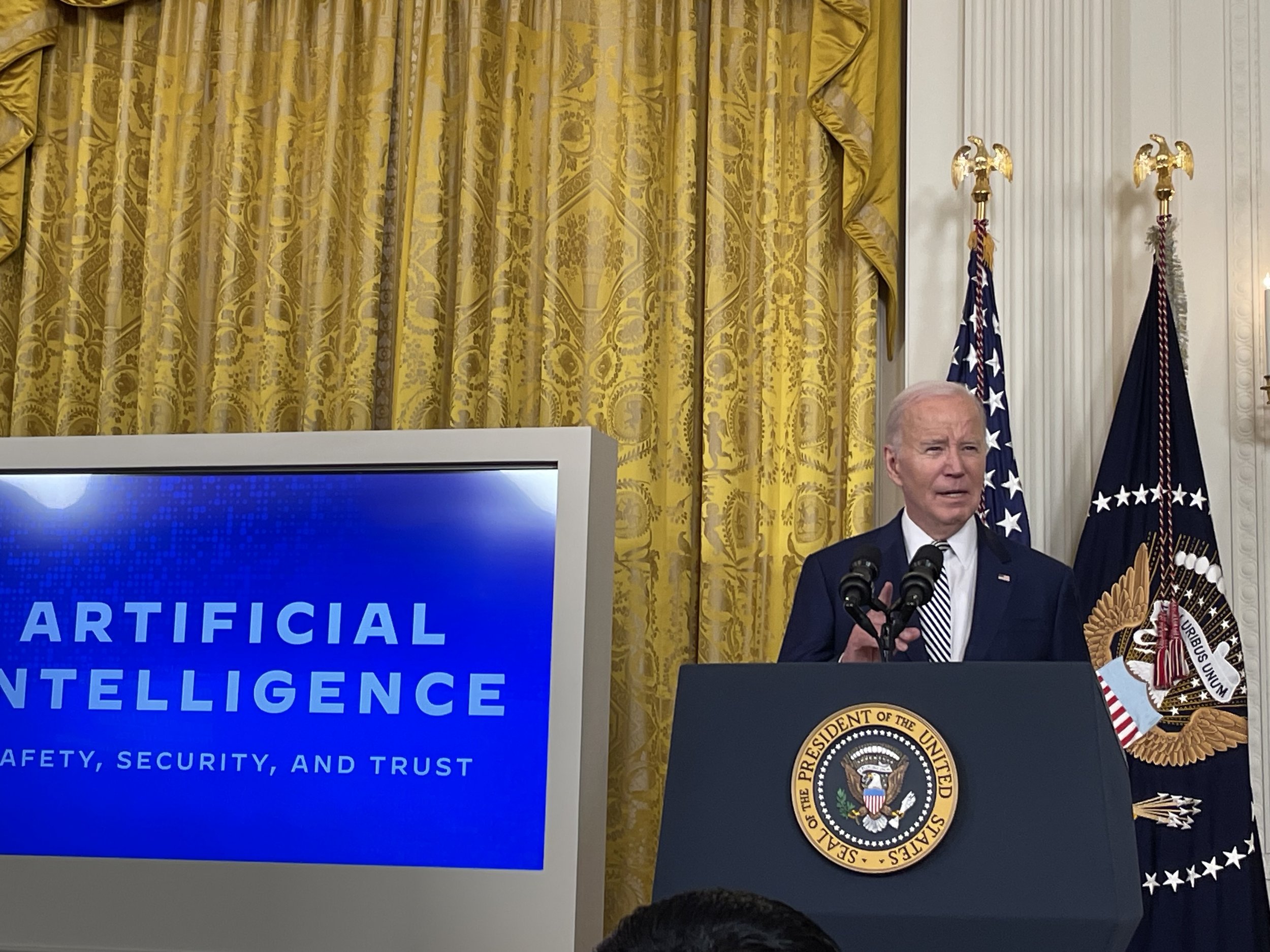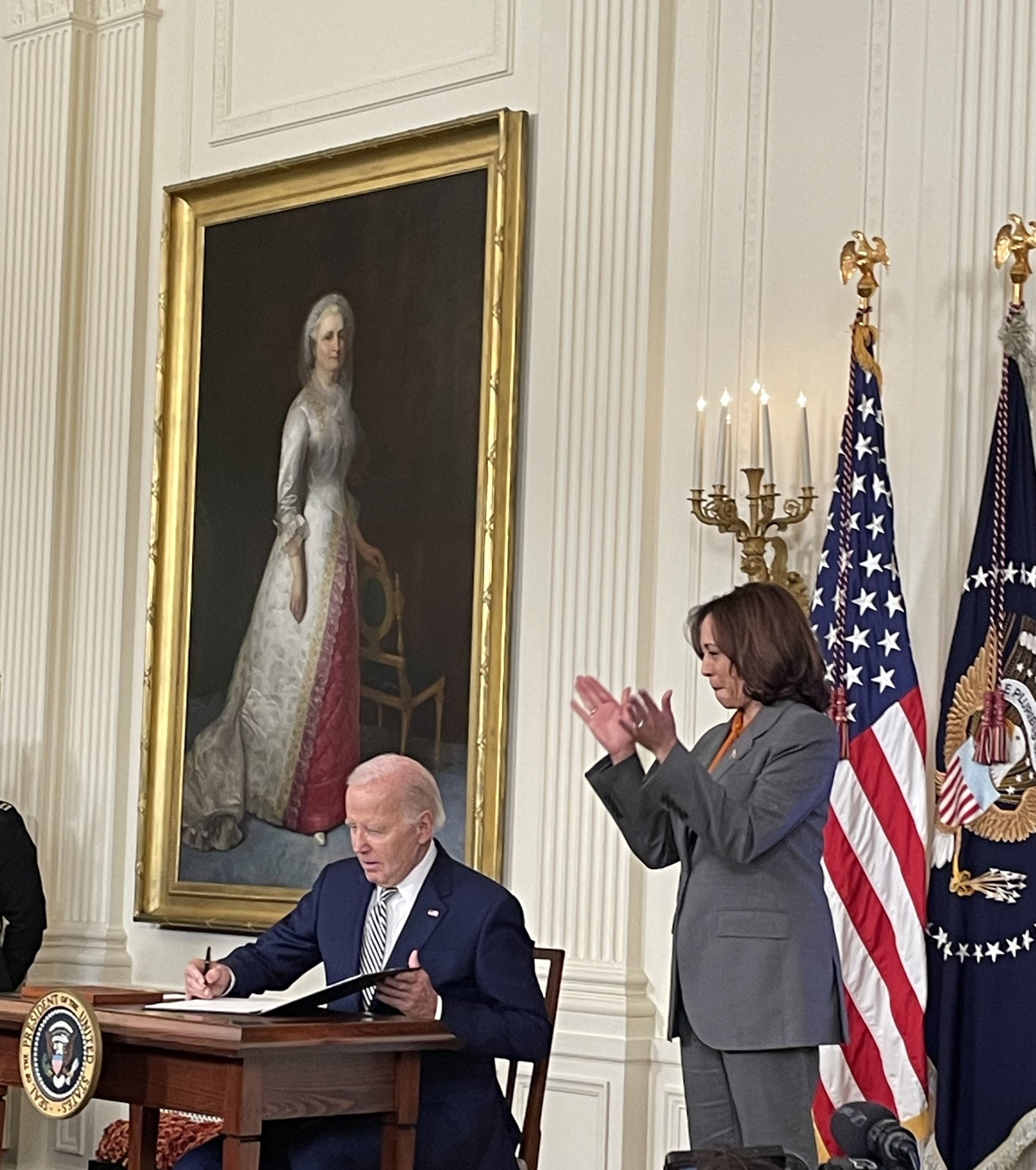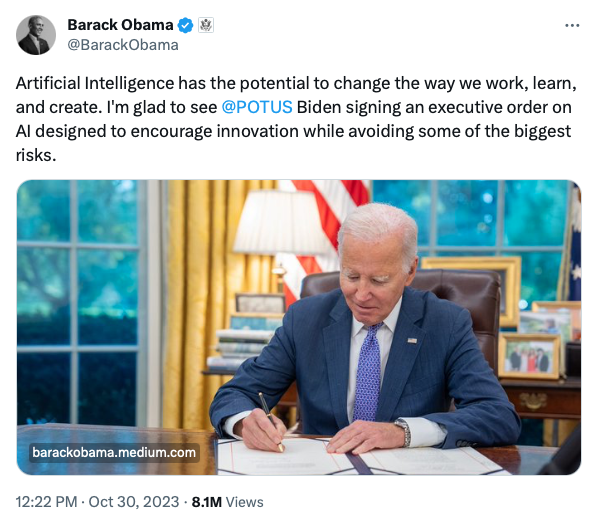A New Era of AI: Zach Friend at the White House, Biden's Executive Order
Today, Zach Friend South County Supervisor for Santa Cruz County was invited to the White House with a number of other industries and politicians to participate in the setting of artificial intelligence (AI) directives. Zach will provide an update at the AI Horizons event on November 8, 2023. Get your tickets soon!
“The President is taking an important step toward ensuring guardrails for privacy and security are in place while still allowing for the harnessing of this transformational technology. Santa Cruz County is leading at the local level in similar efforts and our work has been recognized nationally as a model for how to approach AI in local government”
Securing AI’s Future
President Biden has issued an Executive Order to position America as a leader in artificial intelligence (AI), focusing on safety, security, privacy, equity, and innovation. This order is part of a broader strategy for responsible AI innovation and builds on previous efforts, including voluntary commitments from 15 major companies.
Key Directives of the Executive Order
1. AI Safety and Security Standards
Developers of powerful AI systems must share safety test results and other crucial information with the U.S. government.
The National Institute of Standards and Technology will set standards for red-team testing to ensure safety before public release.
New standards to protect against AI-driven dangers in areas like critical infrastructure and biological material engineering.
Standards for detecting AI-generated content and ensuring content authenticity.
2. Privacy Protections
Prioritize development and use of privacy-preserving techniques in AI.
Strengthen privacy-preserving research and technologies.
Evaluate and improve how agencies collect and use commercially available information, focusing on privacy.
3. Advancing Equity and Civil Rights
Guidance to prevent AI algorithms from exacerbating discrimination in housing, justice, and federal benefits.
Address algorithmic discrimination through training and coordination between civil rights offices.
Develop best practices for fair use of AI in the criminal justice system.
4. Consumer, Patient, and Student Protections
Promote responsible AI use in healthcare, including establishing a safety program for AI-related healthcare practices.
Support the use of AI in education with resources for educators.
5. Supporting Workers
Develop principles to mitigate AI’s potential harms and maximize benefits for workers.
Study AI’s impact on labor markets and strengthen support for workers facing disruptions due to AI.
6. Promoting Innovation and Competition
Catalyze AI research through initiatives like the National AI Research Resource and grants.
Ensure a fair, open AI ecosystem and expand opportunities for skilled immigrants in critical areas.
7. Advancing American Leadership Abroad
Engage in bilateral and multilateral collaborations on AI.
Establish robust international frameworks for AI’s safe, secure, and trustworthy deployment.
Promote responsible AI development globally to tackle challenges like sustainable development.
8. Responsible Government Use of AI
Issue guidance for agencies on AI use, procurement, and deployment.
Accelerate hiring of AI professionals and provide AI training for government employees.
The administration aims to work with international partners for a strong framework governing AI development and use. These steps are essential for the U.S. to lead in responsible AI innovation, and more actions will follow, including pursuing bipartisan legislation.
For more information and opportunities to join the Federal AI workforce, visit AI.gov.





